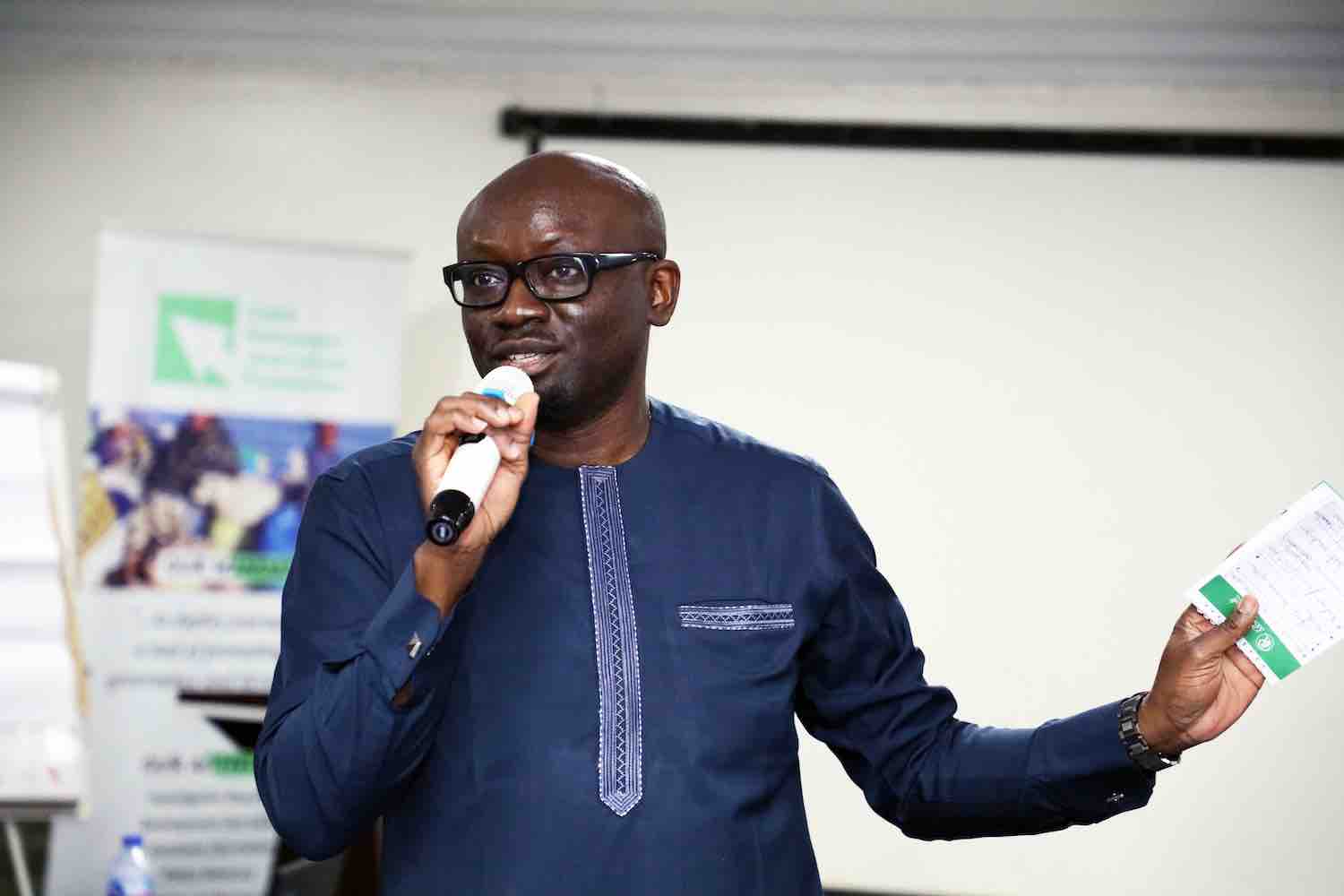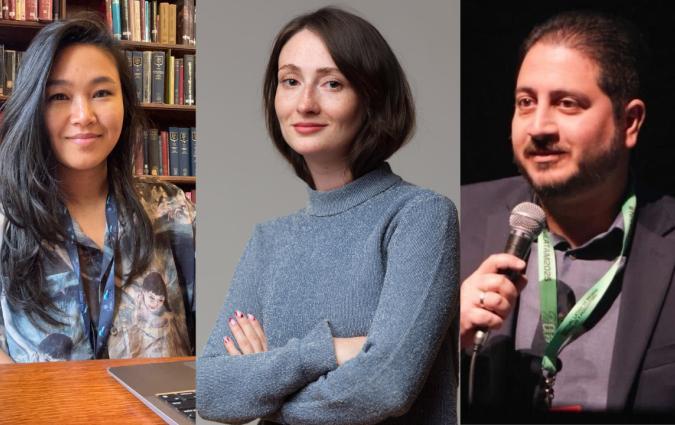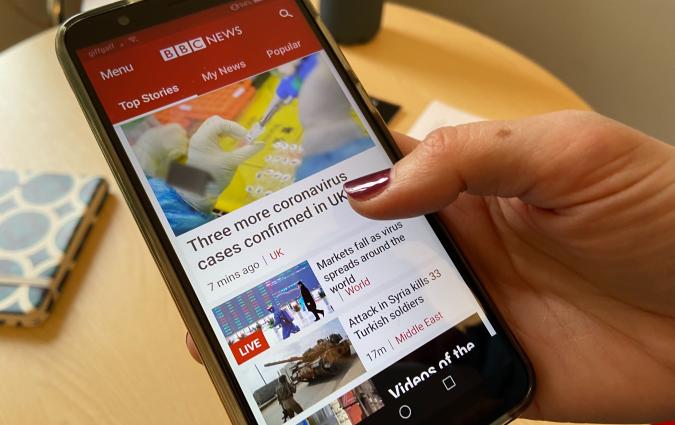“We created The Cable to show that online journalism can be done professionally and decently without blackmail or extortion”

Simon Kolawole is a veteran Nigerian journalist and the founder and CEO of TheCable, one of the leading news sites in Nigeria. TheCable’s revenue model is based on advertising, grant support and sponsored corporate events and it has 35 full-time journalists on its payroll.
Before founding TheCable, Kolawole was the editor of THISDAY, a newspaper where he still serves as a columnist. He has journalism degrees from Nigeria and the UK as well as a Chevening Scholarship. He recently published Fellow Nigerians, It’s all Politics, a collection of essays about his home country focusing on leadership, democracy and national integration. In this interview, he speaks about the changing media industry in Nigeria, the role of donor organisations, and challenges such as press freedom, sustainability and business models.
Q. How would you say the Nigerian news industry has evolved over the years?
A. Mobile devices have taken over the world. Every profession has had to adapt to this disruption and legacy newspapers need to adapt too. Mobile phones, tablets and desktop computers have become the primary means of accessing news. Printed newspapers are not selling as they used to and the costs of production are getting out of hand.
Radio and TV are not that affected: they are easily available on mobile devices and they also provide the added value of news on the go. It is the newspapers that are badly hit, but they are also ramping up their online presence to move with the times.
Nevertheless, I still don’t believe newspapers will disappear. Some people still want to hold a newspaper while having a cup of coffee. In Nigeria, newspapers are still regarded by many as the mainstream media. They won’t die entirely like vinyl records and cassettes.
Q. Tell us about your journey into journalism and the role you have played in the modern era media evolution in Nigeria.
A. My grandmother, who brought me up, thought I should be a lawyer because I was always arguing and asking questions, but I had fallen in love with journalism at the age of 11.
When I first applied for university admission, Dele Giwa, the editor-in-chief of Newswatch magazine, had just been killed via a parcel bomb. Rather than discouraging me, the incident further fuelled my interest. I felt if they could go to the extent of killing a journalist, there must be something powerful about the profession. Don’t blame me: I was just a teenage secondary school student. I didn’t make the cut-off mark for the admission then. But I still stuck to journalism. Since graduating in 1992, I have covered sport, entertainment, business and politics.
Years before I left my position as editor of THISDAY in 2012, I had registered Cable Newspaper Ltd and the plan was to do a daily newspaper. I chose the name “Cable” after Wikileaks published the US diplomatic cables in 2010. I liked the sound of the name. It was fresh, and not yet used as the name of any newspaper.
After I left THISDAY, though, all the research I did about newspapers scared me. The financials were not encouraging. That was what opened my eyes to online journalism. At the time, news sites were not really professionally done, except for the ones run by the mainstream newspapers, which were not frequently updated. They were merely online versions of the printed paper. I felt we could do better.
Only one or two independent news sites did proper journalism back then. Others were mostly copying and pasting from the sites of established newspapers. Some were just aggregating. They did not produce original reporting and the quality of their writing was not the best. I said I could lead a team that would bring more respect to online journalism. That was how TheCable online was launched in April 2014.
I was encouraged by the fact that it was going to be low on cost and faster on news delivery. We deliberately describe ourselves as an “online newspaper” so people know we are actually a proper newspaper without the newsprint. The reception was great. We did not only report news with speed and simplicity. We also did big interviews, broke big stories, got a few scoops, wrote interesting features and were generally creative and ethical. Many people started seeing that online journalism could be done with professionalism. I believe this has encouraged many professionals to come on board.
Q. Why did you launch TheCable and which role do you think it’s had in training a new generation of journalists across the country?
A. There was the motivation to do things differently, to show that online journalism can be done decently and professionally, without blackmail or extortion. The other benefits came accidentally.
I discovered that many experienced newspaper journalists didn’t want to work online because they thought the influence they had would wane and the other benefits that come with working for the traditional newspapers would disappear. We started recruiting young journalists, some of them straight from the university. We were able to help them off to a sound footing in their careers. They were teachable and dynamic. They also understood the digital ecosystem better.
Today, many of those journalists have gone on to win national and international awards, and quite a number are now working for international organisations. To be honest, it was not part of the original plan. We now have a graduate internship programme. It is very competitive. Applicants write tests and attend oral interviews. We train them for six months, during which we place them under senior journalists for mentorship, and we employ the best among them. The graduate trainee scheme is funded by the MacArthur Foundation through the Cable Foundation, which is a different legal entity from our main company.
Q. There are many challenges facing the media industry in Nigeria: press freedom, sustainability, new business models, training and welfare. What is the impact of these challenges on the media industry?
A. The media business in Nigeria is not very lucrative. Many media houses are struggling to survive. Gone are the days when a newspaper would sell 500,000 copies per day. The industry now relies almost entirely on advertising revenue. And when the big companies have financial challenges, advertising spending is one of the first items that suffer cuts.
It is inevitable that the economic crunch would affect everything about the media: welfare, capacity building, independence and the like. Press freedom is affected in many ways. There’s state censorship and self-censorship. Increasingly, government agencies and powerful individuals are intimidating the media with claims of criminal libel and cyber terrorism.
Individuals also use senior lawyers to intimidate journalists, knowing well that it is very expensive to get good lawyers who can defend the media. Commercial concerns also mean that some journalists self-censor to avoid losing advertising patronage. Nevertheless, the press is still pushing on in the midst of these challenges.
Q. What are your thoughts on the role of media donor organisations in the Nigerian media industry? TheCable has received donor funding from MacArthur and others. How has this grant helped your publication and what projects were you able to achieve with the grants?
A. Through the Cable Foundation, MacArthur supports us mainly with grants for capacity building and investigative reporting. The support has helped us tremendously. We are able to use our own revenues to settle personnel costs and overheads as well as do some capital projects.
If we were to pay for capacity building and investigative reporting all by ourselves, some things would have suffered. Many of the investigative reports have won awards. Some of the journalists we mentored are excelling and getting poached by international media organisations. We have developed a good mentorship culture in the process. The foundation has also got support from the Open Society Initiative for West Africa (OSIWA) to train campus journalists. It was a great and successful experience. In 2017, the UK government also supported the foundation in covering the oil sector. We have sustained the project.
Q. TheCable has a partnership with the global project Report for the World. What inspired this partnership and how has your publication and journalists benefited from it?
A. Report for the World had a good idea about covering the underreported beats and communities. It was like they were reading our minds. We wanted to report more on criminal justice, climate change and social inclusion, but we needed additional hands. Then they came along and we were able to engage three young journalists as a result. We are reporting these beats very well now. Personally, I am very happy. I know the readers are also getting served as we have done a lot of impactful stories.
Q. You recently authored a debut book where you discuss leadership, democracy, national integration and the economy. How important are these issues in Nigeria, especially ahead of next year's election?
A. It is a collection of fresh articles as well as selected write-ups over nearly two decades. The issues we discuss in Nigeria are almost always the same all the time. My intention is to nudge Nigerian voters to question the candidates more. When they campaign, I want them to say, ‘Haven’t we heard this before?’ I also want to prick the conscience of our leaders. I want them to ask themselves, ‘Have we really given our best for the progress of Nigeria?’ I generally argue that our leaders devote more energy and resources to politicking than governance.
Q. Do you think every journalist should author a book of their own just like you did?
A. I believe journalists should write books. The market for books is not that big, but we have to build it. We won’t build it by doing little or nothing. Books are part of history and they offer perspectives as well. The knowledge sector will benefit from such books.
Q. What are your plans for the future at TheCable?
A. We had a growth plan from the beginning. The first stage was to establish TheCable as a news leader. We also wanted to build TheCable into a knowledge brand that will operate similar business models as the ones run by The Economist and the Financial Times.
We have made good progress in news writing and reporting. We are aware that there is a massive room for improvement. But we are certainly better today than when we started out in 2014.
Along the line, we accidentally became a mentoring and training institution. We would like to take this further. Building TheCable into a knowledge company is the next item on the agenda. This means leveraging knowledge to design products and services that will be highly marketable. For instance, the Economist and FT do conferences. We are working on bespoke products. We are not yet thinking of premium content or erecting a paywall because the Nigerian market is a bit reluctant to pay for news. It will take a lot of resources but Rome was not built in a day. We can use all the support we can get as well. We now have Cable Books, which is the book publication arm. We focus on biographies, autobiographies, memoirs and essays. We are still at the test-run phase and we have published three books in one year so far. Above all, we want to be the number one online media outfit out of Africa and we will keep working hard and strategically towards achieving our dream.
Patrick Egwu is a Nigerian freelance investigative journalist based in Toronto, Canada where he is currently a William Southam Journalism Fellow at Massey College, University of Toronto. Formerly based in Johannesburg as an Open Society Foundation Fellow, his reporting is at the intersection of human rights, social justice, global health, migration, conflict and development in sub-Saharan Africa, and has been published by Foreign Policy, NPR, Daily Maverick, African Arguments, Rest of World, World Politics Review, Global Investigative Journalism Network and elsewhere. You can find his work here.
In every email we send you'll find original reporting, evidence-based insights, online seminars and readings curated from 100s of sources - all in 5 minutes.
- Twice a week
- More than 20,000 people receive it
- Unsubscribe any time







